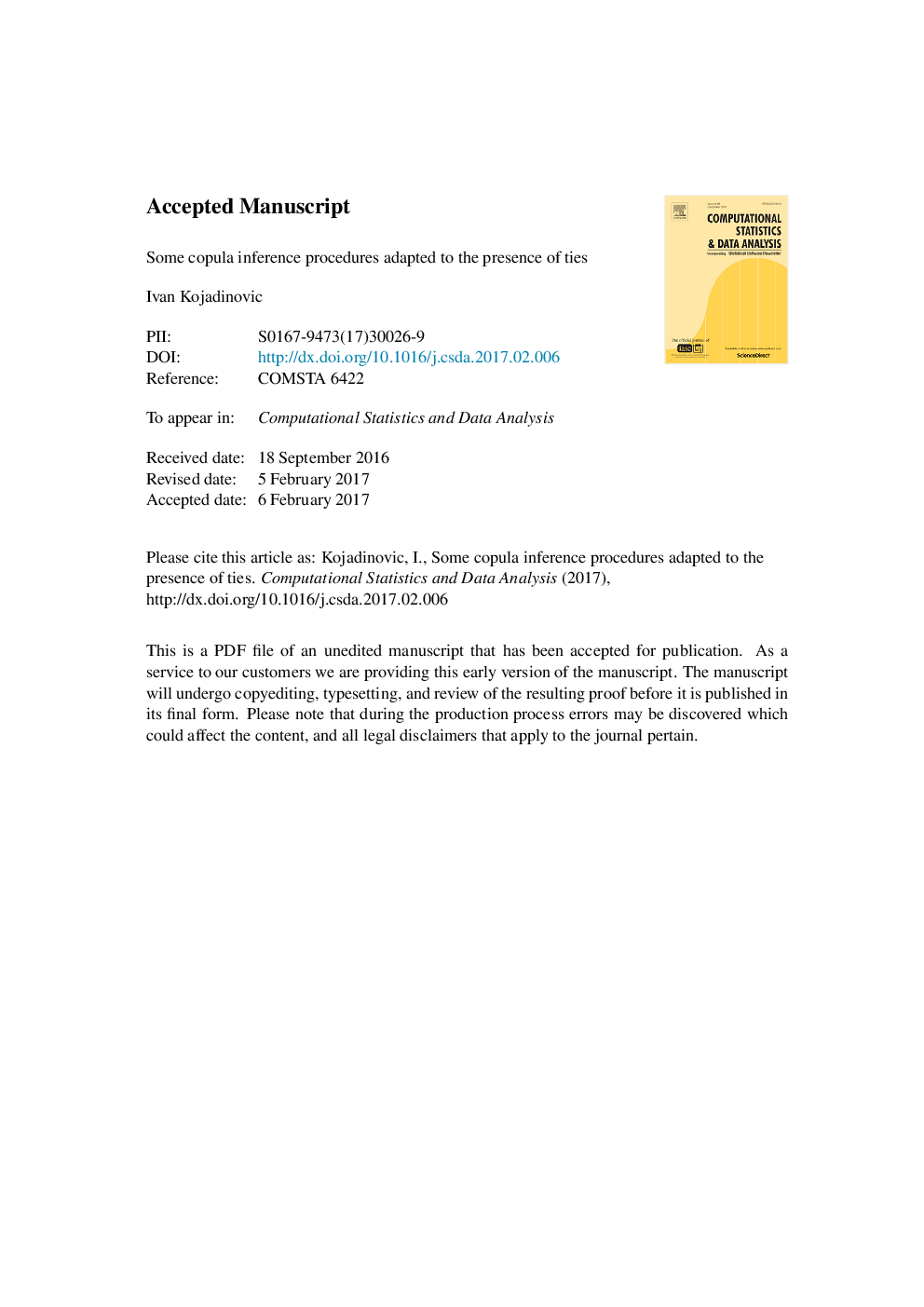| Article ID | Journal | Published Year | Pages | File Type |
|---|---|---|---|---|
| 4949327 | Computational Statistics & Data Analysis | 2017 | 33 Pages |
Abstract
When modeling the distribution of a multivariate continuous random vector using the so-called copula approach, it is not uncommon to have ties in the coordinate samples of the available data because of rounding or lack of measurement precision. Yet, the vast majority of existing inference procedures on the underlying copula were both theoretically derived and practically implemented under the assumption of no ties. Applying them nonetheless can lead to strongly biased results. Some of the existing statistical tests can however be adapted to provide meaningful results in the presence of ties. It is the case of some tests of exchangeability, radial symmetry, extreme-value dependence and goodness of fit. Detailed algorithms for computing approximate p-values for the modified tests are provided and their finite-sample behaviors are empirically investigated through extensive Monte Carlo experiments. An illustration on a real-world insurance data set concludes the work.
Keywords
Related Topics
Physical Sciences and Engineering
Computer Science
Computational Theory and Mathematics
Authors
Ivan Kojadinovic,
